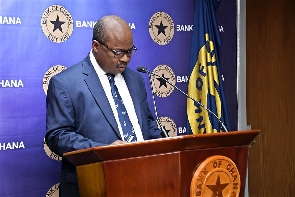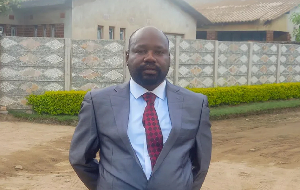Dr Ernest Addison, the Governor of the Bank of Ghana, says the Bank will continue to engage industry actors to develop forward-looking policy frameworks in the areas of Digital Banking and Open Banking.
He said financial technologies could alter the financial sector landscape for the better and the Bank remained committed to promoting innovation in the delivery of financial services.
Dr Addison was speaking at the Governor’s Day Annual Bankers Dinner organised by the Chartered Institute of Bankers in Accra.
He said, in this regard, the Bank would continue to monitor risks and opportunities for banks, payment service providers, and consumers to thrive in the digital financial ecosystem.
The Governor assured stakeholders of the gradual rebound of the economy, adding that Growth was improving steadily, inflation was declining, the fiscal and external positions were improving, alongside relative stability in the exchange rate.
Dr Addison said the absent unanticipated shocks in the outlook, the continued implementation of prudent policies would further strengthen the recovery process and reinforce the disinflationary process.
These conditions will improve the operating environment for the banking sector to remain stable and strong to support the economy.
“This notwithstanding, let me assure the public that, on the back of the Domestic Debt Exchange Programme and other risks that may emerge in the banking sector, the Bank will continue to closely monitor developments and, where need be, take appropriate and decisive actions to address same,” he said.
The Governor said the Bank would ensure that depositors’ funds remained safe, and that the financial system remained stable and resilient.
He said the banking sector had progressed steadily amidst series of storms in the past six years.
“We witnessed the banking clean-up exercise between 2017 and 2019, the COVID-19 pandemic in 2020, spillovers from geopolitical tensions in Europe, and an economic crisis in 2022 that triggered a domestic debt exchange,” he said.
He said despite all these, banks had remained relatively stable and sound, partly because the Central provided leadership to the industry to navigate through these economic uncertainties and volatilities with policy clarity and focus safeguarding stability of the financial system at all cost.
Business News of Sunday, 3 December 2023
Source: GNA













